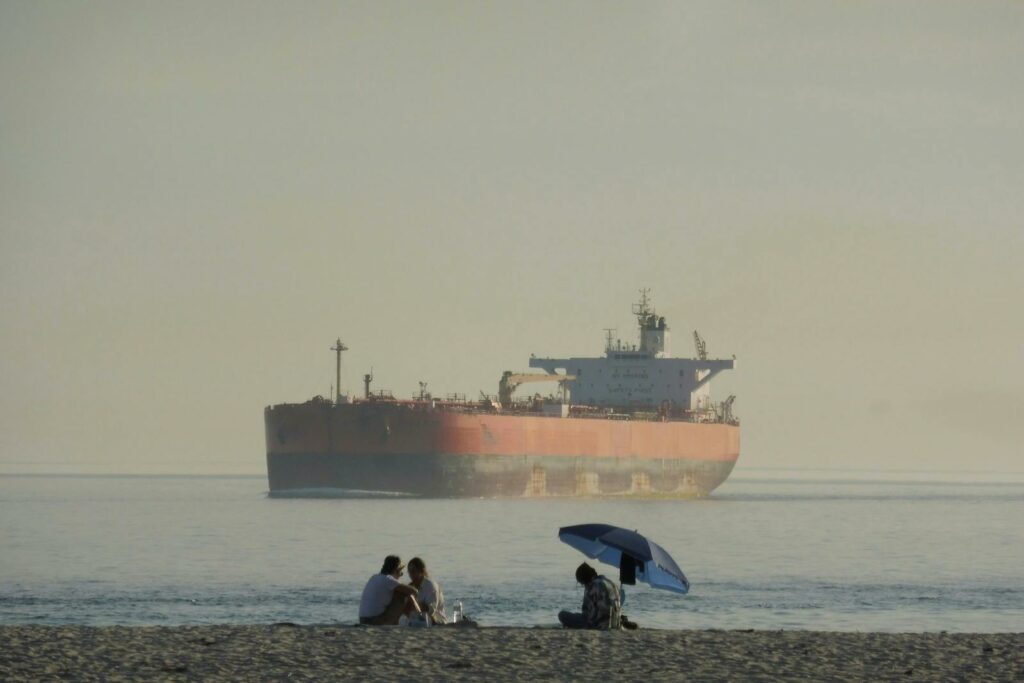While the EU is boosting investments in its own defence and accelerating the military support to Ukraine, to enable it to negotiate from a position of strength, its sanctions against Russia’s war of aggression continues to be circumvented by both EU Member States and third countries.
As previously reported, Kyiv-based sanctions experts argue that the enforcement of the sanctions remains patchy, and new ways to evade sanctions continue to emerge. Yuliia Pavytska, who manages the sanctions programme at Kyiv School of Economics Institute, told The Brussels Times that despite sanctions, Russia remains highly adaptable in maintaining essential trade and financial flows.
"We believe the EU needs to move away from large packages every few months," she said, "and instead regularly target smaller networks, vessels, and companies involved in sanctions evasion."
She mentioned two examples of loopholes and circumvention of the sanctions. First, despite a oil price cap set by the G7, Russia regularly circumvents it through complex shipping schemes and the use of a “shadow fleet” of vessels that mainly are acquired from EU Member States.
According to the Kyiv School of Economics, since 2022 Russia has invested about $10 billion in expanding this fleet, which is now believed to number over 400 ships. Reportedly, almost 60% of the vessels were sold to the shadow fleet by Western European owners, including Belgium, with operators in Greece being the most frequent sellers.
The EU has tried to curtail the shadow fleet from operating by introducing rules requiring companies selling vessels to third countries to check that they are not used to circumvent sanctions. Individual tankers are also barred from EU ports and services if found to be transporting Russian oil. A Commission spokesperson described the listing as quite successful, with about 150 vessels been banned port access.
But apparently these measures are not enough and the Russian shadow fleet has kept growing. Last seek it was also reported that the Dutch authorities have initiated criminal proceedings against the country’s largest shipbuilder, Damen Shipyards, for allegedly violating Russian sanctions established after the invasion of Ukraine.
According to media reports, the company is under investigation for corruption, forgery, and money laundering, and for supplyng goods and technology that could have strengthened the Russian military. A loophole in the sanction regime has reportedly also allowed a Damen shipyard in France and a Danish shipyard to carry out maintenance work on Russian tankers.
Damen denies any wrongdoing and no details of the alleged circumvention of EU sanctions have been disclosed by the Dutch authorities. The allegations, however, draws the attention to another loophole in the sanctions: trade statistics reflect Russia’s new routes for acquiring vital European components and foreign technology that are not directly covered by the sanctions.
The EU has prohibited the export, sale, transfer of dual-use goods and advanced technology items to target sensitive sectors in Russia’s military industrial complex and to limit its access to crucial advanced technology.
Furthermore, the European Commission, in coordination with authorities in the US, the UK and Japan, have agreed on a common list of high priority items - prohibited dual-use goods and advanced technology items used in Russian military systems and found on the battlefield in Ukraine or critical to the development, production or use of those Russian military systems.
The list “may support due diligence and effective compliance by exporters and targeted anti circumvention actions by customs and enforcement agencies of partner countries determined to prevent that their territories are being abused for circumvention of EU sanctions purposes”. The Commission describes the list as a central element in EU’s discussion with third countries.
However, the fact that the items have been found on the battlefield in Ukraine indicates that they continue to be exported or reexported via third countries to Russia. As regards the supply of military equipment, such as drones, missiles and ammunition, to Russia from third countries (e.g. Iran), EU’s restricted measures against a number of individuals and entities have been insufficient.
Diplomatic outreach and constant engagement with these countries is a must, the Commission told The Brussels Times, and added that this is the core of the mandate of the EU Sanctions Envoy, David O’Sullivan, a former Commission Director-General and EU Ambassador. He is probably the only one who can tell how effective EU anti-circumvention actions are but is not available for any interview.
“We are making all efforts possible from the first day to avoid sanctions circumvention,” the Commission commented. “Circumventing sanctions is a crime and tackling it is a matter of priority. We are keeping a close eye on third countries that are used as platforms for sanctions circumvention and in particular operators that are engaged in circumvention schemes and re-exporting EU sanctioned goods to Russia.”
M. Apelblat
The Brussels Times

